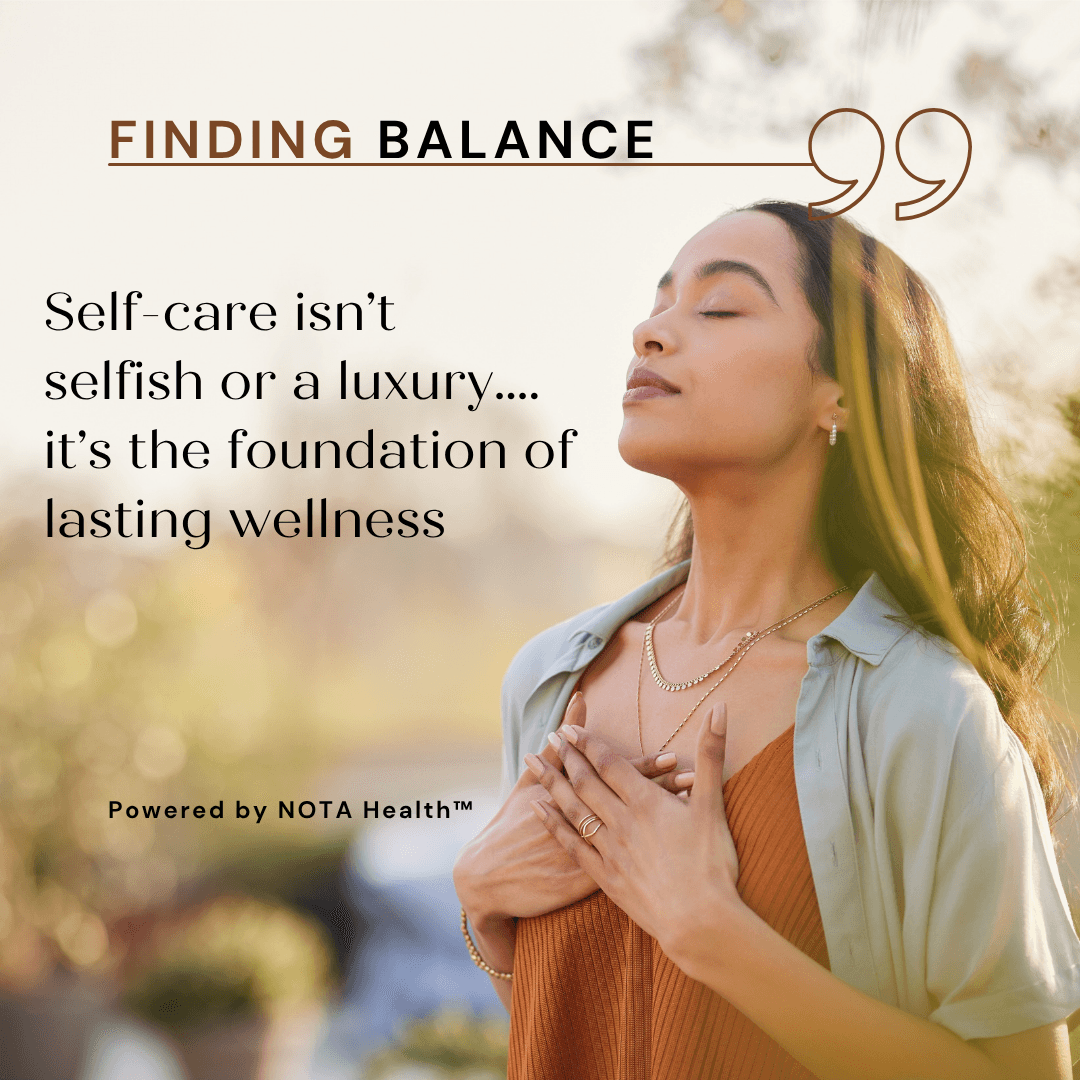
Breaking Free from Chronic Stress: A Woman's Guide to Recovery and Resilience
More Than Just Tired—The Hidden Burden of Chronic Stress
If you're a woman constantly juggling responsibilities... career, caregiving, relationships, home life; and still feel like you're falling behind, you’re not alone.
Chronic stress has become a silent epidemic for modern women. It hides behind your busy schedule, masks itself as fatigue, irritability, or anxiety, and eventually robs you of the vitality and joy you deserve. But the good news? You can recover.
This guide dives deep into chronic stress: what it is, how it affects your body, why women are more vulnerable, and how to begin the healing process.

What Is Chronic Stress--and Why Is It So Common in Women?
Chronic stress is your body’s prolonged response to emotional, physical, or mental pressure. Unlike acute stress, which is short-lived and sometimes even helpful, chronic stress is persistent and insidious.
📊 Startling Stats That Paint the Picture
Women now make up nearly 47% of the U.S. workforce, and more than 75% still shoulder the majority of domestic and caregiving responsibilities. The result? A chronic and dangerous level of stress that doesn't clock out.
53% of women report feeling burned out, compared to 41% of men (McKinsey & Company, 2022).
Nearly 1 in 3 women considered leaving or downshifting their careers due to burnout.
In healthcare and education, women are twice as likely as men to experience chronic stress and burnout.
Women with caregiving duties at home are 50% more likely to experience high stress levels (American Psychological Association).
Common causes of chronic stress in women include:

Caregiver burnout: Whether you're raising children, supporting a partner, or caring for aging parents, the emotional and physical labor of caregiving can feel never-ending. Many women silently carry the weight of others' well-being while putting their own needs on the back burner.
Work-life imbalance or toxic workplace environments: Trying to excel at your job while also managing household responsibilities can feel like an impossible juggling act. A toxic boss, lack of boundaries, or the pressure to always “perform” can add fuel to the fire.
Relationship conflict or emotional labor: From unresolved tension with a partner to the unspoken burden of being the emotional anchor for friends and family, emotional labor is real...and it’s draining. Often, women feel responsible for managing everyone else's emotions while their own needs go unmet.
Financial strain: Whether you’re a single mom, part of a dual-income household, or navigating debt, financial stress is a heavy and constant burden. Worrying about bills, savings, or unexpected expenses keeps your nervous system in overdrive.
Past trauma or unresolved grief: Unhealed experiences from childhood, abuse, or loss can linger in the body and mind for years. Without proper support, these deep wounds can trigger ongoing stress responses, even in seemingly “safe” environments.
Perfectionism & People-Pleasing: Many women feel pressure to “do it all” perfectly...be the best mom, partner, friend, and professional. Saying yes to everyone else while saying no to yourself creates emotional exhaustion. The internal drive to meet unrealistic standards leads to chronic guilt, resentment, and a constant sense of falling short.
Lack of Restorative Time: Even when there’s a moment to breathe, it’s often filled with chores, obligations, or guilt for not being productive. Women are often “on” all the time...physically present but mentally juggling to-do lists. Rest becomes something to earn, not something essential.
Hormonal Changes: PMS, perimenopause, thyroid imbalances, and adrenal fatigue are more than just hormone fluctuations; they’re stress amplifiers. These shifts can trigger mood swings, fatigue, anxiety, and brain fog. For many women, hormonal transitions create a perfect storm that mimics or worsens burnout, leaving them feeling emotionally and physically drained without a clear explanation.
Women are also more likely to internalize stress due to societal expectations to "do it all," often ignoring or minimizing their own needs in the process.
Symptoms of Chronic Stress: How It Shows Up in Your Body

Many women don't realize they’re under chronic stress until their health starts to decline. Here are some red flags:
Physical Symptoms:
Fatigue, even after sleep: You wake up tired and stay tired throughout the day. No amount of coffee, naps, or early bedtimes seem to help.
Headaches or migraines: Stress-related tension can lead to frequent headaches or debilitating migraines that interfere with your daily routine.
Muscle tension or chronic pain: Tight shoulders, stiff neck, aching back? Chronic stress keeps your muscles in a clenched state, often leading to ongoing discomfort.
Digestive issues: Stress disrupts gut health. You may experience bloating, cramping, constipation, or even IBS without realizing stress is the trigger.
Hormonal imbalances: From irregular periods and severe PMS to fertility challenges and perimenopausal symptoms, stress throws your hormones off balance, often creating a ripple effect across multiple systems.
Mental and Emotional Symptoms:
Anxiety, worry, or racing thoughts: You constantly feel on edge, anticipating the next disaster, even when things are going relatively well.
Depression or mood swings: One moment you’re managing, the next you’re in tears or completely withdrawn. Chronic stress chips away at emotional stability.
Brain fog or memory issues: You forget appointments, struggle to focus, and feel mentally “off”—like your mind is always clouded.
Low motivation or loss of interest: Things that once brought you joy now feel like chores. You lack energy to engage with hobbies, loved ones, or even yourself.
Emotional numbness or irritability: You might feel disconnected from your feelings—or swing the other way, snapping at people or crying over small things.
The Stress-Hormone Connection: What You Need to Know

When you're under constant stress, your body produces more cortisol (the stress hormone). Over time, elevated cortisol levels:
Disrupt your sleep: You either can't fall asleep, wake up throughout the night, or wake up feeling unrefreshed. Cortisol imbalance often leads to insomnia or poor sleep quality.
Impair digestion and nutrient absorption: Stress slows digestion and reduces stomach acid, making it harder for your body to absorb key nutrients. This can result in nutrient deficiencies and gut imbalances.
Interfere with estrogen, progesterone, and thyroid hormone production: Chronic cortisol spikes throw off your entire endocrine system, which affects everything from your menstrual cycle to your metabolism.
Weaken your immune system: You get sick more easily or take longer to recover. Chronic inflammation and a taxed immune system make it harder to fight off infections.
This hormonal chaos can leave you feeling like a completely different person—emotionally drained, physically exhausted, and mentally foggy.
Why Rest Alone Isn’t Enough: The Need for Nervous System Healing
Many women think a vacation or a weekend of rest will solve their stress, but chronic stress requires a deeper level of healing. Your nervous system needs to shift from constant "fight or flight" mode into a calm, safe, and restorative state.
Signs your nervous system is dysregulated:
Difficulty relaxing, even in peaceful environments: You might be lying in bed, at the beach, or sitting on your couch, yet your mind is racing and your body can't settle.
Startle response or hypervigilance: You jump at loud noises, feel the need to scan for danger, or can't let your guard down—even when things are fine.
Sleep disturbances: You struggle to fall asleep or wake up feeling wired and tired. Your nervous system is too activated to allow deep rest.
Cravings for sugar or caffeine to cope: Your body is looking for quick energy or comfort. These cravings are signs your stress response is in overdrive.
The First Steps Toward Recovery

Healing from chronic stress begins with awareness. Take time to reflect on your personal stress patterns and symptoms. Small, consistent changes like prioritizing sleep, setting boundaries, and nourishing your body with real food can make a big difference over time.
But if you’re looking for more structure, support, and a clear path forward—you don’t have to figure it out alone.
Need a Proven Roadmap to Recovery?
If you’re ready to stop guessing and start healing, the Burnout Recovery Bootcamp™ is for you ( coming soon )
This self-paced Toolkit is designed specifically for women like you—high-achievers, caregivers, nurturers—who are ready to break free from the cycle of burnout and finally feel like themselves again.
✅ Printable tools and trackers
✅ Nervous system and hormone support strategies
✅ Audio tools for daily stress relief
✅ Bonus resources to rebuild energy and joy
>> Start your recovery journey today with Burnout Recovery Bootcamp™
Visit www.notahealth.com to learn more
Final Thoughts: You Deserve to Feel Like Yourself Again
Chronic stress may be common—but it’s not your destiny. With the right tools, support, and intentional shifts, you can feel better.
Your body wants to heal. Your mind wants peace. Give yourself permission to begin today.
✨ Stay empowered, stay supported—NOTA Health has your back.
JOIN OUR FREE NEWSLETTER Today!
Get weekly expert-backed health tips, latest health news, food-as-medicine guides, recipes, curated wellness resources to help you reclaim your health and live life to the fullness.

Heal from the inside out - One Step at a Time
NOTA Health™ LLC| 3651 PeachTree PKWY, STE E Suite 109, Suwanee, GA 30024
©2026 NOTA Health™ , LLC

